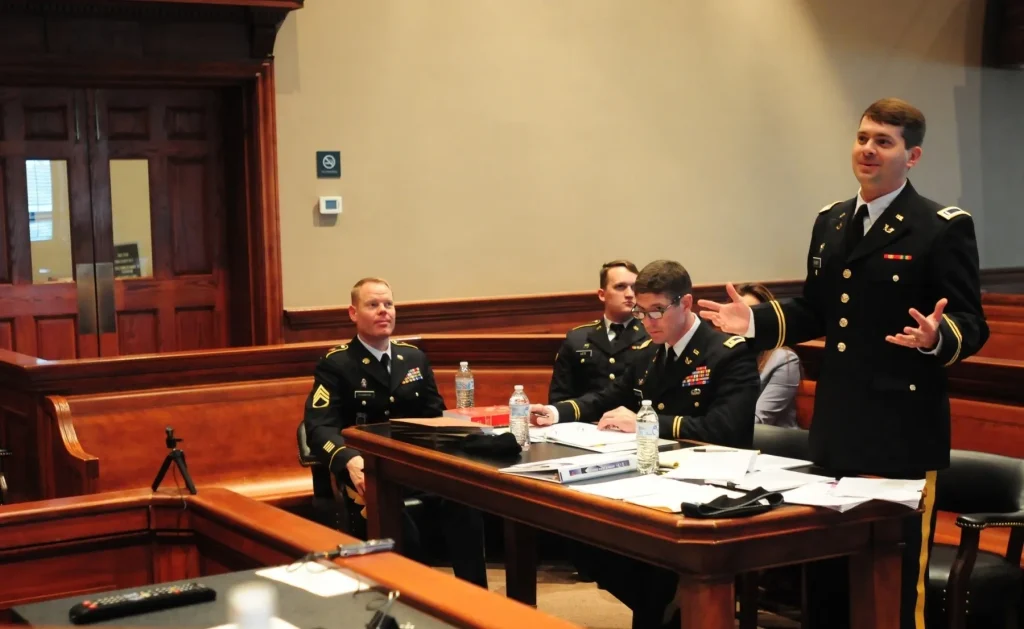Understanding the differences between Summary, Special, and General Court-Martials is crucial if you or a loved one faces military charges. Each type of court-martial serves a distinct purpose and carries its own level of severity. You need to know what to expect and how it affects you. Summary Court-Martials handle minor offenses quickly. Special Court-Martials deal with more serious, yet non-capital offenses. General Court-Martials address the most severe charges, similar to civilian felonies. Every military member deserves fair treatment. Knowledge about these court-martials ensures you can advocate for yourself. Legal support is essential, and understanding your rights can make all the difference. Mangan Law can guide you, offering the expertise required to navigate this complex process. Emotions run high during this time, and knowing the facts helps you remain steadfast. Stay informed, stay empowered. Your awareness might change the course of events.
Understanding Summary Court-Martials
Summary Court-Martials are the least severe. They address minor offenses like small thefts or unauthorized absences. A single officer presides over the process, which is quick and straightforward. You can’t have a lawyer represent you, but you can consult one before the proceedings. The maximum penalty is usually limited to 30 days of confinement, reduced rank, and forfeiture of two-thirds pay for one month. Understanding this process helps you prepare for any outcomes, ensuring you manage expectations effectively.
Insights into Special Court-Martials
Special Court-Martials involve a military judge and at least three jury members. These apply to offenses that are more significant, like drug use or assault. You have the right to a military defense attorney or a civilian one at your expense. This type allows full legal representation, which can be critical for fair proceedings. The penalties can include a bad-conduct discharge, confinement for up to one year, and forfeiture of two-thirds pay for one year. Knowing your rights and options is vital in navigating this process.
Details on General Court-Martials
General Court-Martials handle the most serious charges, equivalent to civilian felonies. A military judge and at least five jury members oversee the proceedings. You have the right to legal representation, crucial for a fair trial. Offenses might include murder, rape, or desertion. The penalties are severe, potentially including life imprisonment or even the death penalty. This level of court-martial demands thorough preparation and understanding. Knowledge and support ensure you approach this process as informed and prepared as possible.
Comparison of Court-Martials
| Court-Martial Type | Offenses Addressed | Legal Representation | Possible Penalties |
|---|---|---|---|
| Summary | Minor offenses (e.g., small thefts) | No representation, but consultation allowed | 30 days confinement, rank reduction |
| Special | Mid-level offenses (e.g., assault) | Military or civilian attorney | Up to one year confinement, bad-conduct discharge |
| General | Severe offenses (e.g., murder) | Military or civilian attorney | Life imprisonment, death penalty |
Importance of Legal Guidance
Facing a court-martial is daunting. It’s not just about legal outcomes but also emotional resilience. You might feel overwhelmed, but understanding your rights and responsibilities helps. Legal guidance ensures you navigate this complex terrain with the best possible support. Trust in those who have experience in military law, and know that you’re not alone.
Empowerment through Knowledge
Knowledge is power. In the context of court-martials, it means understanding what each type entails and recognizing how it impacts you and your loved ones. Information equips you to handle situations with clarity and confidence. Use the resources available to stay informed. Your proactive approach can change the trajectory of these proceedings, ensuring fairness and justice. Stay strong. Stay informed.
